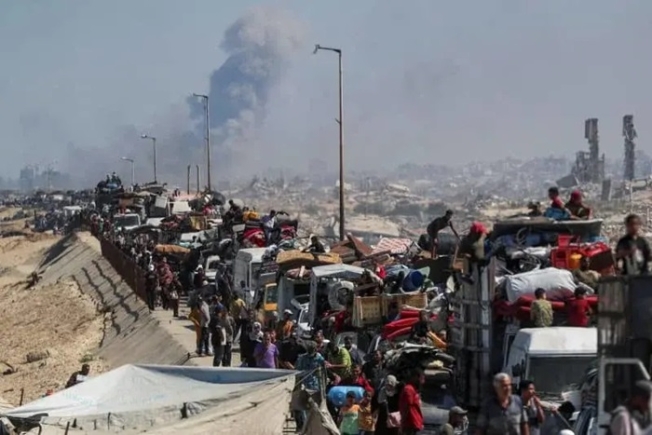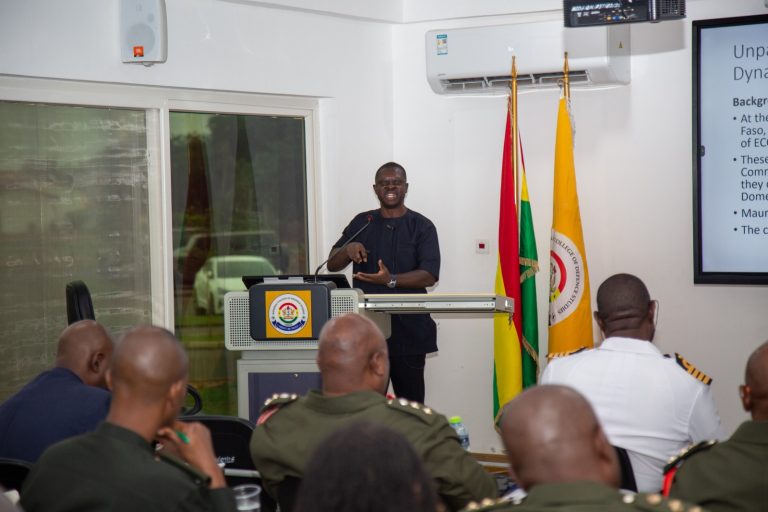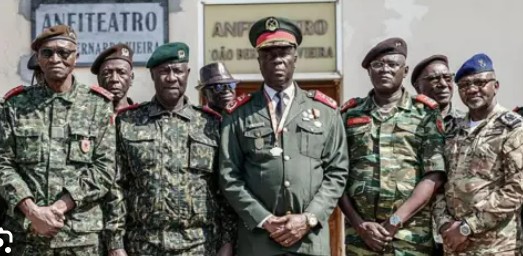From December 13th to 15th, the United States will host the US Africa Leaders’ Summit in Washington. The second of its kind, the U.S.-African Leaders Summit 2022 is expected to enhance cooperation on shared global priorities between the African continent and the US. The Summit will feature representatives of 49 African countries and the chairperson of the AU. The 2022 Summit follows the first one held in 2014, under President Obama’s administration, that was aimed at private sector partnerships and investments in African countries on initiatives in energy, financial services, climate change, food security, and health care, among other areas. This year’s Summit is expected to prioritize similar issues while placing an even greater emphasis on bilateral trade and investment initiatives.
Indeed, the context in Africa since the 2014 Summit has evolved at all levels. First, the Russia-Ukraine crisis is derailing Africa’s slow recovery from COVID-19. A recent study by UNDP on the impact of the war in Ukraine on sustainable development in Africa shows that the effect of the crisis on Africa’s economies has been most detrimental on trade, as well as on food and fuel, which account for over a third of the consumer price index in most African countries. As a result, these adverse effects have been most devastating to the poor.
Secondly, there is a steady decline in the quality of democratic governance in Africa. In 2020, for the first time in almost a decade, the number of countries designated by the Global State of Democracy (GSoD) indices as authoritarian now outweighed those deemed democratic. Although some significant regime transitions have occurred – through democratic elections – opposition parties upstaging strong ruling parties, some presidents have attempted to extend their stay in power using constitutional amendments, or judicial interpretations that exploit loopholes in the legal system. The African Center for Strategic Studies reported sixteen successful attempts to change or eliminate presidential term limit and six unsuccessful attempts in the region between 2000 and 2020. Constitutional coups d’etat is a source of political instability and violence in the region as witnessed in Togo, Burundi, Cote d’Ivoire, and Guinea.
Third, violent extremism threatens peace and security on the continent, with killings and abductions by terrorists and armed bandits spreading beyond the Sahel and the Horn of Africa into southern Africa, and the coastal regions of West Africa. In 2022, the Global Terrorism Index ranked Africa as the global epicenter of terrorism, with Sub-Saharan Africa accounting for 48 percent of global deaths from terrorism.
Again, the constant violation of human rights and the concerning rise of authoritarianism across the continent continue to breed disaffection and resistance among the citizens. In Benin, Ethiopia and Zimbabwe, governments have responded to the expression of individual freedoms by jailing journalists or opposition figures. In Ghana, Somalia, Guinea, and Senegal, COVID-19 safety protocols were used to deny citizens the right to protests that were sparked by frustrations with social and political conditions that the pandemic had exacerbated. Citizens in Sierra Leone and Guinea who protested the astronomical cost of living in the wake of Russia’s war in Ukraine and demonstration for a speedy return to civilian rule in Guinea, respectively, were violently clamped down on, resulting in an unacceptable level of deaths.
The African continent also continue to suffer the effects of climate change to a disproportionate degree, despite being the least carbon emitter. Climate change threatens the lives and livelihoods of over 100 million in extreme poverty and could reduce the GDP of sub-Saharan Africa by up to 3 percent.
Prospects for democratic and economic renewal in Africa
The US Africa Leaders’ Summit presents an opportunity for Africa to benefit from immense investment of material and human resources from the rest of the world into its various countries. This must be seen as an opportunity for the continent to advance its development agenda and its global strategic interest by drawing on its relationship with the US to build on policies and initiatives that have already been started on the continent, to address its diverse challenges in health, trade, energy, food and agriculture, democracy, good governance, human rights, peace and security.
Democracy and Good Governance
The US demonstrated its commitment to democracy in Africa with its decision not to extend an invitation to the Summit to Mali, Guinea, Sudan, and Burkina Faso. What the US must be urged during this summit to make more of a commitment towards, is a clamp down on the tendency among African leaders to revise constitutions to enable them extend their stay in power beyond the constitutionally permissible limit. Possible areas of focus should include how US influence can be brought to bear to ensure that initiatives such as the two-term maximum for ECOWAS presidents that was proposed under the ECOWAS Protocol on Democracy and Good Governance can materialize. This Summit must also explore how US influence can be used to pressure the military juntas in African countries to hand back power to democratically elected governments through the enhancement and the promotion of regional instruments such as the AU’s Framework on Unconstitutional Change of Government. The restoration and the consolidation of democracy on the continent could be attained through partnership and cooperation with the US in enhancing such instruments as the Africa Peer Review Mechanisms (APRM) to deal incrementally with the creeping authoritarianism and the decline of democracy tin the region.
Terrorism, Conflict and Security
At the time that global cooperation in the fight against terrorism on the continent is more crucial than ever, the anti-terrorism campaign particularly across West Africa has seen such developments as the disintegration of the relationships between Mali and the West over the former’s involvement with Russia and the weakening of MINUSMA with the sequential withdrawal of troops from the program by member countries. While Western countries continue to deliberate with their African counterparts on ways to restore and sustain their cooperation in the fight against jihadism, African initiatives such as Accra Initiative can also be assisted with logistical and technical support to equip them to fend off the concerning hazards such as the increasing risk of terrorism in coastal West Africa. Discussions must be held to see how synergy can be built with other anti-terrorist initiatives in the African region such as the Multinational Joint Task Force in the Lake Chad Basin, Joint Force of the Group of Five for the Sahel (G5 Sahel) and the Nouakchott Process to root out the menace.
Climate Change and Food Security
The impact of Russia’s war in Ukraine on African economies is solely as a result of Africa’s dependency on oil and gas imports, and among others, imported grain and fertilizer from Russia and Ukraine. But since long before the COVID-19 pandemic or the effects of the war in Europe were felt in Africa, agriculture and food supply chains in sub-Saharan Africa have been plagued by extreme weather events, causing poor yields and crop failure. The intertwining of food security and climate change creates a complex and evolving challenge that demands that approaches to solutions are incisive and focused. The summit creates the opportune circumstance under which to discuss how the vision of food security, for African initiatives like the AU’s Comprehensive Africa Agriculture Development Programme (CAADP), can be adapted to the vital priorities spelt under the COP27 such as innovative finance for climate and development, water security and investment in the future of energy. For the immediate interim, the discussions must consider how to address the continent’s demand for cereals like wheat and on how African food systems can build resilience in the face of growing vulnerability and shocks.
Energy
An issue that must feature primarily in discussions on US-African partnership in this summit, must be the issue of energy. The end-game for Africa in any cooperation with the US on energy, must focus on how to assist African countries in improving their oil and gas production and exploration capability to fill any gaps that may occur due to supply chain disruption among the major global producers. Also, African countries that produce oil and gas, such as Algeria, Angola, Cameroon, the Republic of Congo, Egypt, Equatorial Guinea, Libya, Mozambique, Nigeria, Senegal, Sudan, and Tanzania, should explore boosting production and filling the gas and oil gap within the continent and beyond to alleviate fuel price shocks and maintain the price of goods and services within acceptable standards. US efforts could be channeled into aiding African governments to attract more significant international investment in oil and gas exploration, for example, through the African Union’s Programme for Infrastructure Development in Africa (PIDA) Framework, particularly in countries where subterranean oil reserves are believed to exist but have yet to be explored. Emphasis must be placed on how energy security remains crucial to Africa’s capacity to secure future for the vast majority of its young population. The Summit must highlight the need for the US as a development partner of Africa to facilitate the continent’s energy agency.
Trade
The Africa Continental Free Trade Agreement (AfCFTA) is the world’s largest single market, with a population size of 1.3 billion people and a combined Gross Domestic Product of $3.4 trillion. The Summit should aim to expand trade and investment platforms across the continent and facilitate actions to enhance trade capacity in Africa. There is a significant degree to which cooperation between Africa and the US can go to minimize the risk of investment in Africa’s infrastructure. And as the business environment and technology evolve to better serve the needs of humanity, avenues for the higher involvement of Africa in such fields as climate innovation, global health architecture, digital transformation, and sustainable energy transition, should be increasingly explored.
Conclusion
The cooperation between Africa and the US are inevitable in attaining the shared priorities of the two development partners. There is ample opportunity for Africa through this summit to ensure that the benefits and support derived from the partnership are better aligned with the current and emerging strategic priorities of the continent, particularly, as spelt out in the various regional instruments, protocols and normative frameworks such as the AU’s Agenda 2063, which is a shared framework on promoting inclusive growth and sustainable development; democracy, good governance, and human rights; and peace and security for Africa, to be realized in the next forty years. The AU and Regional Economic Communities as well as organs and institutions must use the summit to enhance implementation of these commitments and aspirations. This must include post summit follow-up mechanisms and monitoring framework on the partnerships and agreements that will be concluded at the summit.



